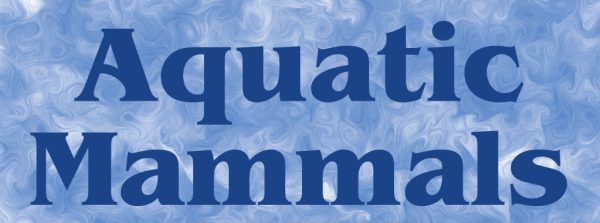Abstract: This study was designed to initially characterize and evaluate the proteome and other biochemical factors in plasma samples collected in association with performance-based physical activity involving four young male aquarium-based bottlenose dolphins (Tursiops truncatus). Blood samples were collected from the tail flukes approximately 15 min before (N = 4 samples) and 15 min after (N = 4 samples) the first public swim interaction of the day, which was reinforced with a daily scheduled feeding regimen and individually prescribed diets. Plasma extracted and trypsin-treated protein extracts were subjected to liquid chromatography-tandem mass spectrometry (LC-MS/MS) and conventional clinical biochemistry analysis. Mass spectra data were used to search the National Center for Biotechnology Information (NCBI) database restricted to Tursiops truncatus. The search resulted in the identification of 196 unique proteins with a broad range of functional roles based on gene ontology (GO) analysis. Differential regulation of proteins was based on log mean fold change (FC) and statistical probability such that the abundance of lysozyme (FC -1.2036; p < 0.058), an immune-related protein, and flavin reductase (FC -0.9702; p < 0.004), a metabolic-related protein, were highest before compared to after the swim interaction; both proteins decreased 58 and 52%, respectively. Correspondingly, 15 known proteins and other biochemical factors were highest before compared to after the swim interaction. Glucose, creatinine, alkaline phosphatase, blood urea nitrogen, calcium, and magnesium decreased 3 to 26% (p < 0.004 to 0.07). In conclusion, down regulation of immune- and metabolic-related proteins and multiple other biochemical factors after the swim interaction may represent a homeostatic response to high values in the absence of substantial food in-between the daily feeding regimen or in anticipation of food before the first swim interaction of the day. Thereafter, low values may represent a response to food consumption or satisfaction. The novelty of these initial results suggests that performance-based physical activity is not immunologically or metabolically challenging in bottlenose dolphins conditioned for swim interactive programs; however, future studies are required for clarification.
Key Words: cetacean, bottlenose dolphins, Tursiops truncatus, blood plasma, proteomics, clinical chemistry
Document Type: Research Article
DOI: https://doi.org/10.1578/AM.43.5.2017.453
Page Numbers: 453-464

